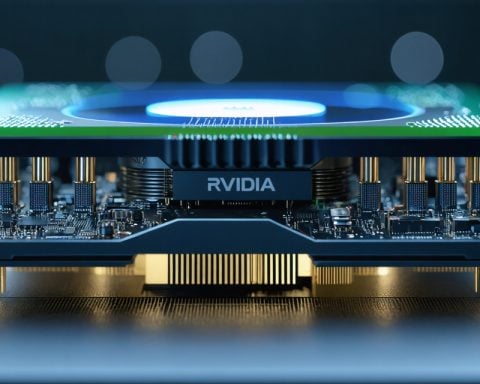- D-Wave Systems Inc. focuses on quantum annealing to tackle complex optimization problems, offering practical advantages in fields like logistics and finance.
- The approach contrasts with gate-model quantum computing by addressing optimization tasks through quantum superposition.
- D-Wave faces challenges such as scalability, financial costs, and integration with classical computing.
- The quantum computing market is projected to exceed $8 billion by the end of the decade, presenting growth opportunities for D-Wave.
- Investing in D-Wave is risky yet potentially transformative, as it may redefine computation or enhance existing technologies.
In the fast-paced world of technology, D-Wave Systems Inc. stands out as a trailblazer in quantum computing through its unique focus on quantum annealing. Unlike the gate-model quantum approaches championed by tech titans like IBM and Google, D-Wave zeroes in on complex optimization problems, proving indispensable in fields such as logistics, cryptography, and finance. This strategic focus sets D-Wave apart, offering a promising vantage point in the burgeoning quantum market.
Key Questions and Insights
Quantum Annealing vs. Gate-Model Quantum Computing: D-Wave’s approach, quantum annealing, is distinctive for its ability to address optimization tasks by finding minimal energy configurations among numerous possibilities. This method leverages quantum superposition to evaluate vast solution spaces simultaneously, offering a practical advantage over traditional digital-based quantum computing.
Challenges and Hurdles: Despite its groundbreaking potential, D-Wave navigates significant challenges typical of a young industry. Key issues include the scalability of quantum systems and financial viability amidst high development and infrastructure costs. The absence of widespread commercial applications adds to investor skepticism, alongside the need for seamless integration with classical computing solutions.
Market Growth Projections: As interest and investment pour into quantum research, the industry is anticipated to exceed $8 billion by decade’s end. D-Wave’s early positioning and dedicated innovations could enable it to harness emerging opportunities across sectors like cybersecurity and AI.
Investment Potential and Future Prospects
D-Wave represents an enticing yet risky investment venture. It invites investors to weigh the transformative power of quantum technology against traditional financial frameworks. As D-Wave navigates its path from innovation to industry staple, the question lingers: will it redefine the rules of computation or simply enhance existing paradigms? The coming years will reveal whether D-Wave can solidify its pioneering status or chart new frontiers in tech-driven solutions.
Why D-Wave’s Quantum Annealing Is a Game Changer in Tech
Key Questions and Insights
What Are the Unique Features of D-Wave’s Quantum Annealing?
D-Wave Systems Inc. leverages quantum annealing, a specialized approach focusing on finding solutions to complex optimization problems. Unlike gate-model quantum computing, which operates on quantum gates similar to logical gates in classical computers, D-Wave’s quantum annealing excels in solving problems formulated as energy minimization. This method allows the exploration of numerous solution possibilities simultaneously, thanks to quantum superposition, making it particularly adept at logistics, cryptography, and finance applications, where rapid and efficient optimization is crucial.
Is D-Wave’s Technology Viable in the Long-Term Market Forecast?
Despite facing substantial hurdles like scalability and high operational costs, D-Wave is strategically positioned within the growing quantum computing market, predicted to surpass $8 billion by the end of the decade. Its focus on practical applications, particularly in cyber security and AI, could see it capture significant market share. For investors, this positions D-Wave as an intriguing prospect because it could potentially redefine computational boundaries or provide enhancements to existing technologies.
How Does D-Wave Integrate with Classical Computing Solutions?
Successful integration with classical computing systems is crucial for practical deployment. D-Wave is actively working on hybrid solutions that combine quantum and classical computing. Such integrated systems can handle larger-scale problems by leveraging classical computing for tasks that do not require quantum processing and employing quantum annealing for specific optimization challenges. This ensures that D-Wave’s solutions remain relevant and competitive as ancillary processing units supplementing traditional computational frameworks.
Related Links
For those interested in exploring more about quantum computing technologies and D-Wave Systems, visit the following:
– D-Wave Systems for insights into their technologies and applications.
– IBM Quantum and Google Quantum AI for comparisons with other significant players in the quantum computing arena.
Conclusion
D-Wave’s quantum annealing technology stands as both an opportunity and a challenge in the quantum computing landscape. The company’s innovations could potentially recalibrate the computational industry, paving the way for future technological advancements. As the market evolves, D-Wave’s continued progress may be pivotal in defining quantum computing’s end goals and applications.












